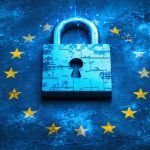
The Illusion of Privacy: Are We Trading Our Security for Technology?
- Privacy is increasingly compromised due to technological advances and data collection practices.
- Amazon’s Alexa will process voice commands in the cloud by 2025, raising privacy concerns.
- Notable data breaches include National Public Data’s exposure of 2.9 billion records and a ransomware attack on UnitedHealth Group.
- The Salt Typhoon espionage campaign infiltrated major US telecommunications networks.
- 23andMe’s bankruptcy raises questions about the security of genetic data for 15 million users.
- Regulations like GDPR and CCPA offer limited privacy protection.
- Individuals are encouraged to adopt privacy-centric practices and choose secure devices.
- Informed decisions are vital to reclaim privacy within the digital era.
In a world increasingly tethered to technology, the concept of privacy is slipping through our fingers like sand. This isn’t a sudden erosion. It’s a gradual but unmistakable vanishing act, leaving us exposed in ways we barely comprehend. Recent revelations show just how much our digital assistants, health records, and personal data are interwoven with the prying eyes of corporations and governments.
Amazon’s latest announcement raises yet another alarm bell. By March 2025, Alexa devices will ditch the option to process voice commands locally. All recordings will stream to the cloud, ostensibly to power the company’s new AI features. In practice, this marks another step in the steady erosion of privacy. Trust in Amazon’s ecosystem of devices already stands on shaky ground, as evidenced by security vulnerabilities in its Fire 7 Kids tablets. These flaws suggest Amazon’s gadgets are less guardians and more potential spies in our homes.
This isn’t an isolated incident. Consider the catastrophic data breach of National Public Data in 2024. The sensitive personal information of nearly 2.9 billion citizens was laid bare, leading to the company’s downfall. Or the 2023 ransomware attack against UnitedHealth Group that jeopardized the data of over 100 million individuals. Despite paying a hefty ransom, the safety of the extracted information remains dubious.
In the realm of global espionage, the Salt Typhoon attacks compromised several major US telecommunications networks, infiltrating communications at the highest levels of government. The long-term impacts of such breaches tend to linger in obscurity, with investigations often hindered by political and bureaucratic roadblocks.
The instability in data management also extends to genealogy and genetic data. 23andMe’s bankruptcy raises unsettling questions about the fate of DNA records of 15 million users. The looming specter of such personal information falling into the hands of unregulated buyers only compounds privacy concerns.
Amidst these revelations, a new generation of artificial intelligence quietly gathers our data, amplifying our vulnerability to surveillance. Yes, regulations like Europe’s GDPR and America’s CCPA provide a semblance of protection, but their efficacy remains limited.
The truth is, privacy is becoming increasingly elusive, and technology keeps tightening its grip. For those seeking control, the options are limited: safeguard yourself with privacy-centric digital practices, opt for devices emphasizing security over convenience, and stay informed about policies affecting your personal data.
In our interconnected world, privacy as we once knew it is nearly extinct. Avoiding exposure is an uphill battle, requiring vigilance and proactive steps. Yet, despite the daunting landscape, individuals have the power to navigate this digital era thoughtfully. By making informed choices and prioritizing privacy, we can reclaim pockets of control in an otherwise transparent world.
The Inescapable Erosion of Privacy: Actionable Steps to Safeguard Your Data
—
Privacy in the Age of Digital Assistants
In today’s digitally interconnected landscape, preserving privacy has become a paramount concern. The integration of AI-powered devices like Amazon Alexa raises new questions about data security. By March 2025, Alexa will process all voice commands via the cloud to support advanced AI functionalities. This transition diminishes local data privacy, making users more susceptible to unauthorized data access.
Real-World Use Cases and Concerns
– Smart Home Vulnerabilities: Devices that rely on cloud processing increase the risk of hacking and unauthorized data access. Reports of Amazon’s Fire 7 Kids tablets’ vulnerabilities underscore these concerns.
– Genetic Data Risks: The financial struggles of companies like 23andMe leave genetic information exposed to potential misuse.
Controversies in Data Breach Impact
Recent, extensive data breaches highlight the precarious state of data privacy. The 2024 National Public Data breach and the 2023 UnitedHealth Group ransomware attack demonstrate how exposed personal data can remain unsecured, even after paying ransoms.
– Market Forecasts & Industry Trends: Continued focus on cybersecurity innovations is expected as companies aim to protect consumer data against a rising tide of sophisticated cyber threats.
Global Espionage and Data Management
The Salt Typhoon attacks, compromising US communication networks, illustrate how geopolitical forces exploit digital channels, leading to broader concerns about state-sponsored cyber espionage.
– Regulatory Challenges: Political and bureaucratic hurdles slow down investigations and responses to such breaches, highlighting the need for more agile regulatory frameworks.
Actionable Tips to Enhance Personal Privacy
1. Adopt Privacy-Centric Software: Utilize tools that emphasize data encryption and anonymity, such as VPNs and encrypted messaging apps.
2. Stay Informed: Continuously educate yourself about changes in data privacy policies, especially for devices you use daily.
3. Opt for Devices Prioritizing Security: Consider technology that balances functionality with strong privacy features, such as hardware with built-in privacy shields.
4. Implement Multi-Factor Authentication: Strengthen account security by adding an extra layer of protection beyond passwords.
The Future of Privacy: Insights & Predictions
The trajectory of data privacy suggests that while technology may continue to encroach on personal space, increased consumer awareness and robust legal frameworks could counterbalance these challenges. Privacy legislation like Europe’s GDPR must evolve to address emerging technological threats and protect consumer rights effectively.
Conclusion: Navigating the Digital Era Thoughtfully
Despite privacy erosion, individuals can take steps to regain control in this transparent world. By making informed decisions and prioritizing digital security, individuals can carve out spheres of privacy and maintain a balance in an increasingly digital society.
As technology advances, it’s essential to remain vigilant and proactive. Protecting your privacy requires ongoing effort and education in the face of evolving threats.















